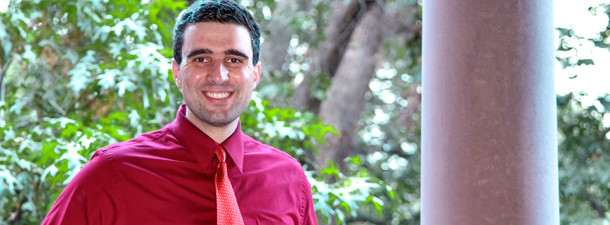Power Journalist Markos Papadatos Celebrates Career High of 10,000 Published Articles


Markos Papadatos is an award-winning Greek-American journalist and educator with a lengthy writing career. Located in New York, Markos covers a large range of topics and he has interviewed a plethora of some of the biggest public personas. He also loves to feature nonprofit and charitable organizations. I kept seeing his articles pop up all over social media and got curious about who he was. His articles and interviews have over five million views on Digital Journal. I decided to talk to Markos to learn and share about his methods, tools and experiences as a journalist. See below…
Wendy Shepherd: Congrats on publishing over 10,000 articles in your writing career! That’s quite a feat! Why and when did you first start writing, who inspires you and how long did it take you to write that many articles?


Every person I interview inspires me. I love telling people’s stories, especially singer-songwriters, actors and athletes, especially. I am in awe of every athlete I have ever interviewed. The amount of work they put into their sports (to better themselves) and their drive is impeccable.
My 10,000th article was published on Christmas Eve (December 24, 2018)… so almost 13 years. “It took me 13 years to become an overnight success,” he said, with a sweet laugh.
WS: What outlets do you write for at this time? How long have you been writing for them?
MP: My main outlet is Digital Journal, the online news publication. I serve as its Music Editor at Large. I have been with them since February 9, 2013, so in a few weeks/days; I will be celebrating my six-year anniversary with them.
In the Greek-American press, I am the Senior Editor of the Hellenic News of America, which I have been doing since October 2009, and I am a Contributing Editor of the Greek-American Herald, which I have been doing since November of 2009 (one month later).
Occasionally, I also write for Blasting News, NEO Magazine, and Greek Reporter. In the past, my work has been published in AOL, Patch, Yahoo! Music, Suite101, and Examiner (some of these outlets don’t exist anymore). I also served as the Managing Editor of the music magazine, Broken Records Magazine, in Staten Island for almost three years from 2009-2012.
WS: You tend to cover a broad range of topics. What are your favorite categories?
MP: That is very true. I love being eclectic. My favorite topics are music, concerts, actors and entertainment, lifestyle, restaurants and food reviews, and of course, sports (especially swimming and track and field). I also love doing feature interviews on people that inspire me, and I love to promote nonprofit and charitable organizations to help raise awareness of their different missions. The one thing I do not like writing about is politics. That is one area that I like to stay out of.
WS: Where do you usually do most of your writing (home, room, coffee shot, on location, other location)? Is there a specific time of day that is best for you to write?
MP: I write anywhere from 6 to 12 articles a day, so I am constantly writing (early in the morning all the way to midnight sometimes, with breaks in between of course). I like to write at home and in my bedroom (which is also my office). Sometimes, when I am out on location (covering concerts), and if the venue allows me (depending on the venue); I get my writing done there.
WS: What tools do you use to help with your writing career? Are there any specific types of technology, apps or software that you use?
MP: I have tried using my cell phone to write down notes for concerts, but it doesn’t always work all the time. The best way, is pen and paper (for concert reviews). I feel that shorthand is the greatest invention in life.
When I first started 13 years ago, I did my interviews on cassette tapes with a cassette player, and that was a disaster. Thankfully, with technology over the years, my audio recording for interviews has improved. My Olympus audio recorder is my best friend. I have done hundreds and hundreds of hours of interviews on it. Lately, I have also used my Voice Memo on my iPhone to audio record my interviews. That works great too.
For the past two months, I have been using Grammarly software/app and I just love it. Wish I knew about it sooner. It really is a copy-editor’s best friend, since most of the time; it catches the hardest to find grammatical errors.
Technology is great since with online media out there, it creates many more opportunities for aspiring writers. I feel that online media will become the new norm of the newspaper and publishing industry. It is inevitable at this rate.
WS: What are some of the challenges you’ve faced and how have you tackled them?


The biggest challenge that I face, to this day, is copyright infringement of my own work. With my articles being so readily available online, a lot of people from different countries or parts of the world, copy and paste the content and they try to pass them off as their own and take credit as if they did the interviews. Sending out cease and desist letters and DMCA (Digital Millennium Copyright Act) letters to the other outlets that plagiarize me can be really time-consuming and aggravating at times (since they shouldn’t be doing this to begin with). This infringes on my intellectual property.
WS: How do you balance your career with everyday life? Do you get enough exercise and sleep?
MP: What I love about being a journalist is that I don’t separate work and pleasure. I love it so much that I can do it all week long (and pull 14 hour work days), and still not be tired.
I try to exercise regularly. On Saturdays and Sundays, I do at least an hour at the gym, and during the week, I try to get in at least 20 to 30 minutes of exercise each day. When I exercise, that is the one time per day, where I turn my cell phone off and I unplug, and nobody bothers me.
Also, each time I go to Manhattan, I walk everywhere, so I get a great deal of exercise that way.
WS: Has social media helped you with your career?
MP: Very much. I love social media. Twitter really is the greatest invention. When I tweet my articles, they can be read all over the world by a wide range of viewers. My aunts, uncles and cousins in the island of Kefallonia, Greece, can see my work through Twitter.
It is also a great way for publicists, managers and artists to contact and find you. That’s what makes social media so fascinating and so mystical. You never know who is reading!
WS: You’ve won many awards over the years, what are some of the top ones that you are most proud of?
MP: In November of 2017, I was inducted into the Hellenic News Hall of Fame in Cinnaminson, New Jersey, at the 30th anniversary event of the Hellenic News, where I was named “Journalist of the Year.” That moment was very special for me since I brought my mother, Effie, with me in the audience, and I was honored by the Greek-American community, as well as publishers Paul Kotrotsios and Aphrodite Kotrotsios.
Also, I won the “Best of Long Island” honor three years in a row in the “Arts and Entertainment” category for my Twitter account and my journalism/writing.


The best reward is every email I get daily from publicists, managers, readers and sometimes, the interview subjects (celebrities, musicians or athletes) themselves telling me how much they enjoyed the interview they did, and reading what I wrote. That is the ultimate compliment as a journalist, especially since I feel that a writer is only as good as his or her reading audience.
WS: Do you plan on writing a book? Do you have other projects you are working on aside from writing?
MP: Yes, I co-authored a book entitled “Manifesting Your Dreams” with veteran children’s book author, Marla McKenna, and several other gifted authors.
Other fellow authors also quote my journalistic work regularly in their books and magazines, and that is the ultimate reward.
Aside from writing, on a part-time basis (in the spring and fall semester), I work at a local college as a teaching assistant for two full-time professors, where I assist the faculty members with developing teaching materials and their course planning. I am also responsible for the grading of their midterms, final exams, and student research papers, and to ensure that they are not plagiarized (running plagiarism checks).
WS: Do you have any tips to share with people who would like to start writing for a career?
MP: The most important thing is to start early. Get involved in a high school or college newspaper; that’s how you get your feet wet, and you get to see if you like it. Build a portfolio from that. Always be punctual and reliable. That way, publicists, agents and managers know that they can count on you.
When you do land a writing career (and the bylines rolling in), have a relatively quick or at least reasonable turnaround rate. Don’t take a really long time to write that article. Don’t keep people waiting. That’s what sets me apart from most of my peers in the contemporary music business. I work quick and to the point.
Ironically enough, I have written 2 articles on Digital Journal sharing all my tips for aspiring music and entertainment journalists (20 tips each, for a total of 40 tips) here and here.
WS: Of all the people that you’ve ever interviewed in music, do any stand out to you as your personal favorite?
MP: Yes. While I constantly get asked who my “favorite music interview of all time is” I finally have an answer to that difficult question. Last year, I did two amazing interviews in music that stood out by a mile: Bret Michaels, the front-man of Poison and Dan Reynolds, the lead singer of Imagine Dragons. I waited my whole career to interview both gentlemen, and it was more than worth the wait. Not only are they amazing singer-songwriters and musicians in their own right, but the charitable work that they do for nonprofit organizations is absolutely inspiring. Both of Dan and Bret’s talents in the music industry can only be surpassed by their humility and philanthropic work outside of the music business. It was a dream come true.
WS: Thank you Markos! It was a pleasure getting to learn more about you!
MP: Thank you, Wendy!
WS: Connect with Markos through Twitter, Facebook and find his writings on Digital Journal here.


